6 Essential Oils For Bruises, How To Use Them, & Precautions
Relieve the pain and swelling from your bruises with a host of magical elixirs.
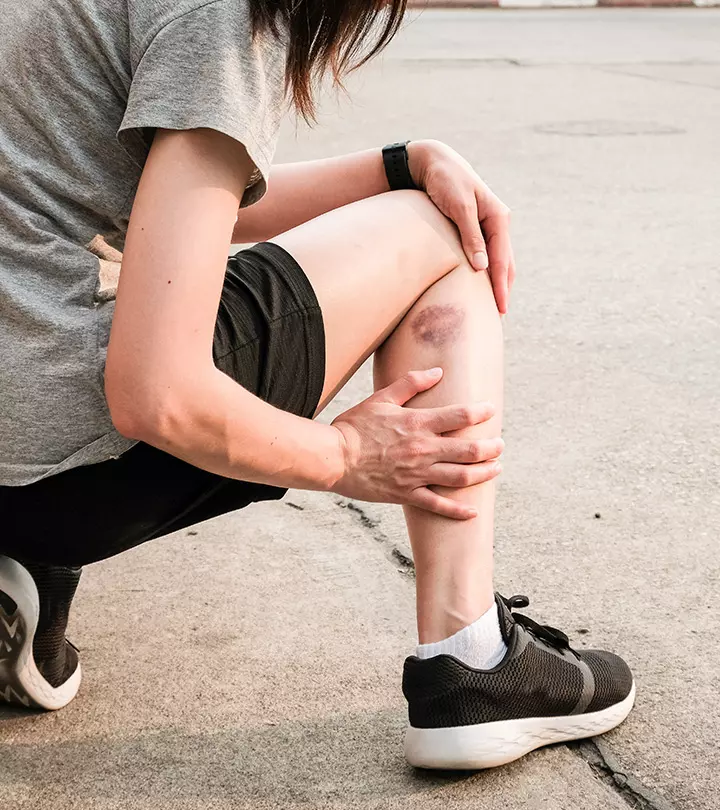
Image: Shutterstock
Essential oils are frequently used as home remedies to treat skin problems. Furthermore, people are beginning to turn more and more towards alternative medicine and natural healing healing approaches in recent years. As a result, the use of essential oils for bruise treatment is on the rise. Read on to find out if essential oils really treat bruises, how to use them, and much more. Keep scrolling!
In This Article
What Is A Bruise? Can Essential Oils Treat Bruises?
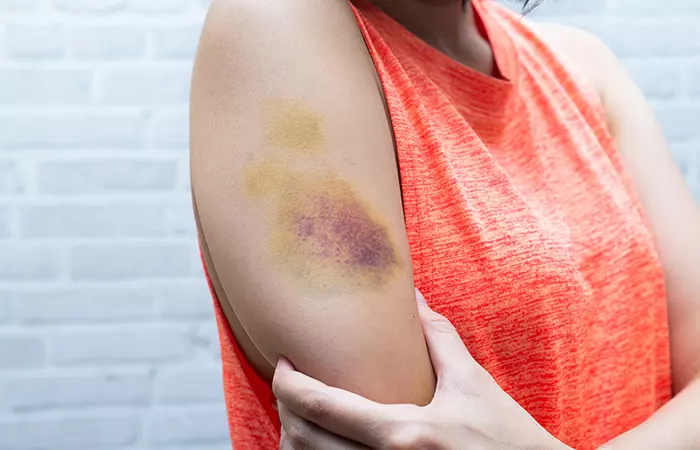
Bruises (or ecchymosis) are discolorations caused by physical trauma (blow or impact) that ruptures the tiny blood vessels underneath the skin. Initially, they appear black and blue but change color while healing.
Many essential oils have anti-inflammatory properties that may help reduce swelling and other symptoms of bruising. In the following section, we have listed the best essential oils that may help reduce the pain, swelling, and discomfort caused by bruising. Before we delve into it, let us take a closer look at the different stages of bruising.
Key Takeaways
- The anti-inflammatory properties of some essential oils can help reduce swelling and other symptoms of bruising.
- You can use turmeric, rosemary, and lavender essential oils to speed up recovery.
- Combine these oils with a carrier oil and massage them to promote blood circulation and boost healing.
Stages Of Bruising
Bruising, also known as a contusion, typically goes through several stages as the body begins to heal itself. The stages of bruising are as follows (1):
- Initial Impact: Blood vessels beneath the skin are damaged due to impact, leading to blood leaking into the surrounding tissues.
- Discoloration: Within a day or two, the bruised area may appear reddish or purplish as the blood pools beneath the skin.
- Color Changes: Over the next several days, the bruise may change color, transitioning from purple or blue to green or yellow as the body breaks down and reabsorbs the leaked blood.
- Fading: As the bruise continues to heal, the affected area gradually fades and returns to its normal skin tone.
Now let’s check the best essential oils you can choose from for bruise management.
Best Essential Oils For Bruises
Before applying the essential oil, thoroughly clean the bruise(s) to remove dirt and impurities. You may use a warm compress on the area for better results.
1. Arnica Montana
The extracts of arnica plant are known for their bruise and pain-healing properties. It can be taken orally or used topically.
A study found that topical 20% arnica could reduce bruising effectively compared to low concentrations of 1% vitamin K with 0.3% retinol (2). Oral intake of arnica montana can also reduce the intensity of postoperative bruising after rhinoplasty surgery (3).
Caution: Do not apply arnica extract on sensitive skin and open wounds as it may cause further irritation.
 Trivia
Trivia2. Frankincense
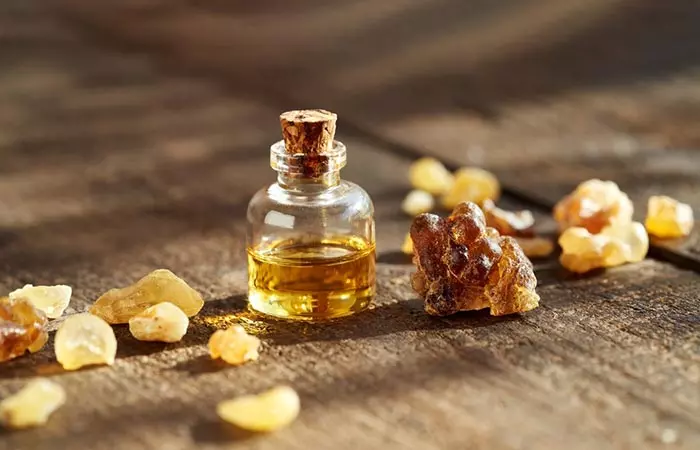
Frankincense, also known as “olibanum,” is extracted from the resin of a Boswellia tree found in India, the Middle East, and parts of the African continent. Traditionally, frankincense is known for its anti-inflammatory properties (4). It is thus a great essential oil for itching issues.
A study found that applying a combination of frankincense (Boswellia serrata) and turmeric (Curcuma longa) essential oils healed soft tissue injuries like bumps, bruises, and minor muscle tears (5).
3. Lavender
Clinical trials demonstrate that lavender oil has a beneficial effect on wound healing and helps reduce redness, edema (swelling), ecchymosis (bruising), and discharge from the wounds (6). Anecdotal claims suggest that it may also be a helpful essential oil for stretch marks.
A YouTuber tried a mixture of helichrysum, lavender, cypress, and germanium essential oils, diluted with coconut oil, to treat her bruise. After two days of using the concoction, she shares in one of her videos, “I did not have nearly as much yellowing. I still have some of the red spots that have of course come to the surface (i).” She adds, “I am actually very very pleased with the results of the oil.”
4. Rosemary
Rosemary is another essential oil that is lauded for its therapeutic properties in healing bruises, sprains, and muscle pain (7). The topical application of this essential oil can heal wounds.
5. Turmeric
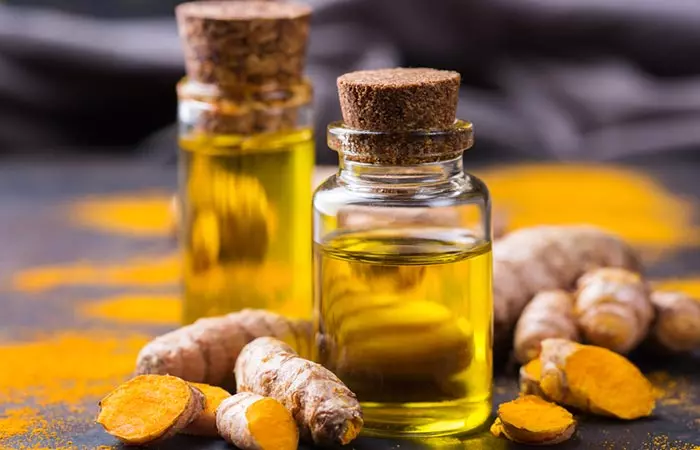
Tumeric has gained its reputation over the years for being an ultimate healing agent for cuts and wounds. Similarly, its essential oil has pain-relieving properties and can heal bruises (5).
 Quick Tip
Quick Tip6. Helichrysum Italicum
Helichrysum essential oil is also known as the “super arnica of aromatherapy” as it has anti-hematomal properties (prevents the collection of blood outside the vessels)
(8). It is often used with macerated oil of musk rose to reduce inflammation, bruises, pain, and edema (swelling).
7. Grapefruit Or Pomelo (Citrus grandis)
The essential oil of grapefruit or pomelo contains limonene, alpha-terpinene, and alpha-pinene. It can heal wounds, and reduce bruises, acne, and other mild skin issues (9).
8. Yarrow And St. John’s Wort
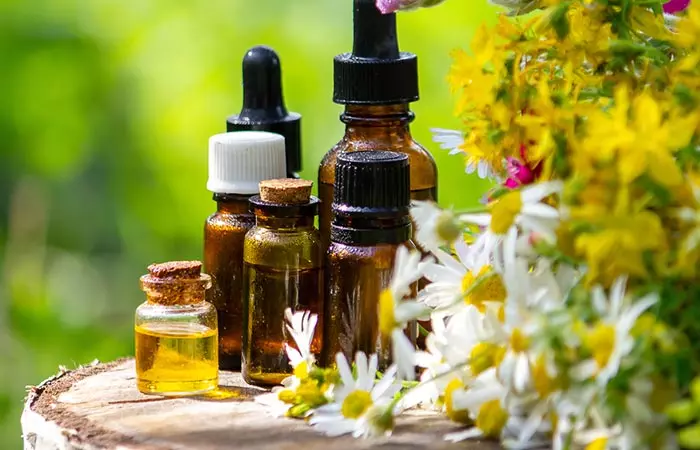
In a study, the essential oils of these two flowers were found to have wound-healing abilities. They can reduce redness, edema, bruising, discharge, and pain related to episiotomy wounds (surgical cut in the vagina during childbirth) (10).
Working with a bruise can be challenging. Hence, it is crucial to adopt a gentle approach while treating it. Also, essential oils are extremely potent, and you have to be careful while using them as natural remedies for bruises. Here is a guide.
How To Use Essential Oils For Bruises
To use essential oils for bruising:
- Mix 2-3 drops of the essential oil with a tablespoon of any carrier oil like coconut, jojoba, sweet almond, and avocado oils.
- Massage the area gently with the oil mix and leave it on for at least half an hour before washing off or overnight.
You can also couple this home remedy with applying a warm compress to reduce swelling and promote blood circulation to improve the bruise.
There are a few things to keep in mind while using essential oils on their skin.
Things To Take Care Of While Using Essential Oils:
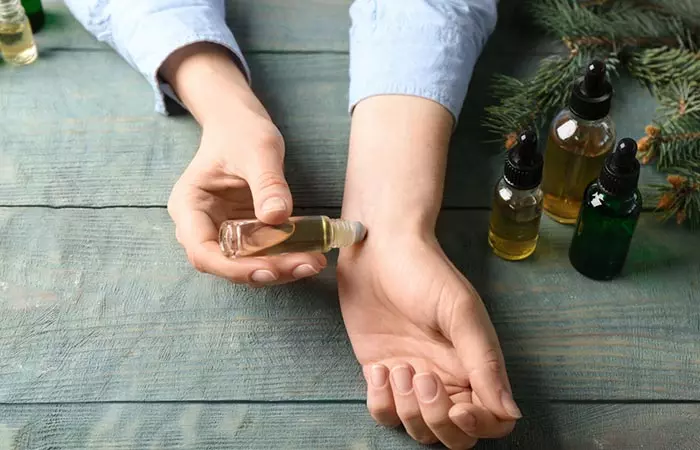
- Always dilute essential oils with carrier oils before application.
- Use the remedy not more than twice a day. Excess use of essential oils can irritate the skin.
- Always do a patch test before using any essential oils, especially if you have a sensitive skin type, to check for allergic reactions.
- If you notice any irritation or allergic reaction, discontinue using the oil.
- Not all essential oil and extracts are meant for oral use. These therapeutic oils are strictly for external use. Do not ingest essential oils unless advised by the doctor.
Severe bruises may take time to heal and may also require medical attention.
When Should I Consult A Doctor For Bruising?
It usually takes two weeks for a bruise to heal. However, consult a doctor if the bruised area has hardened or has increased. Usually, this indicates a blood clot under the skin or muscle.
The second and slightly rarer possibility is heterotopic ossification. This is a condition in which calcium accumulates in the injury spot.
Both these conditions require immediate medical attention.
Moreover, if you are experiencing unexplained bruising, it is better to consult a medical professional. They might conduct tests, such as X-rays, to observe slight changes in bone fracture. Alternatively, they may conduct blood tests to detect any clotting or vitamin deficiencies.
Here are some other signs you must look out for to make an immediate appointment with your doctor.
- Unbearable pain and swelling
- Bruising that persists longer than two weeks
- Lumps in the bruised area
Infographic: How To Treat Bruises
Bruising is a common condition that strikes almost everyone at some point in their lives. Without treatment, most bruises disappear within two weeks. But bruises and hematomas that are more severe can persist for a month or longer. If you seem to bruise frequently or have unexplainable bruising, you should consult a doctor. Follow the tips outlined in the infographic below to help your bruises heal faster. Illustration: StyleCraze Design Team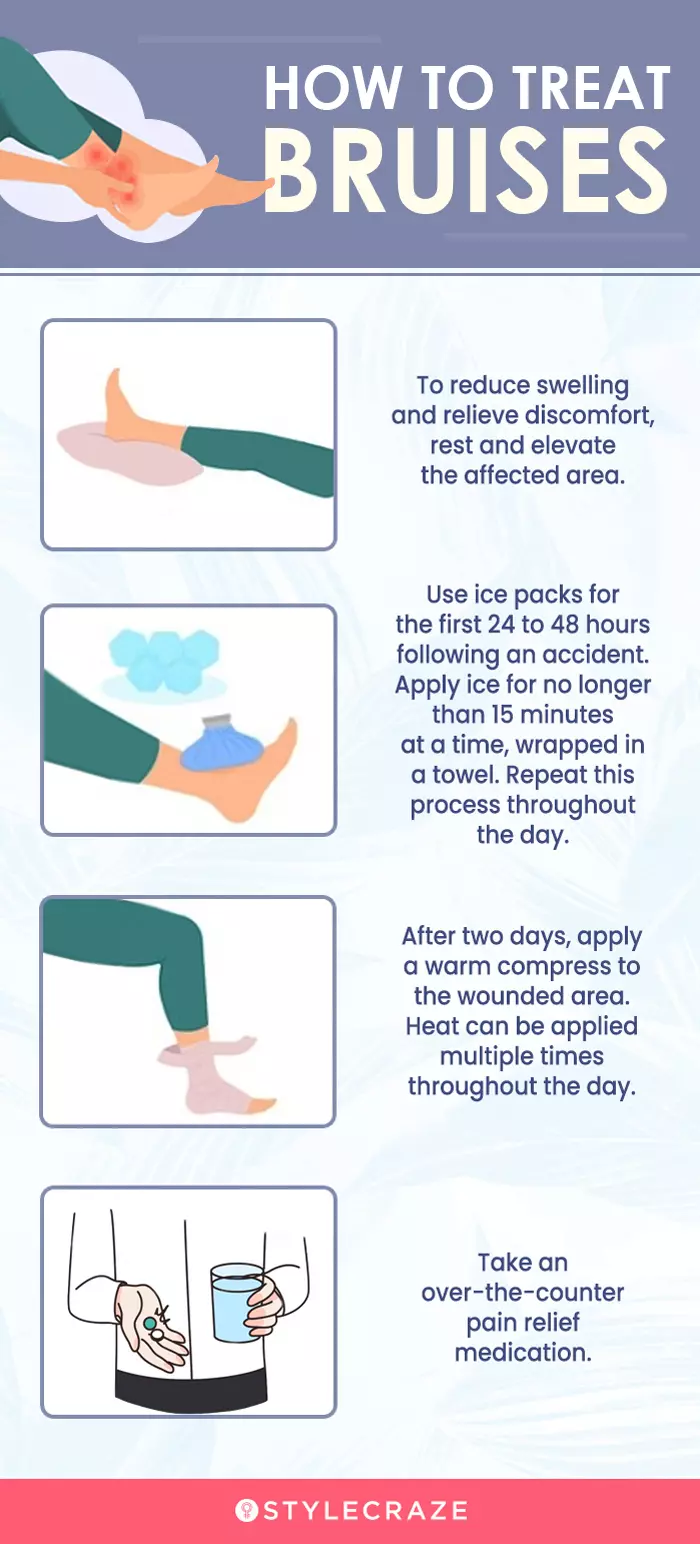
Bruises are not always serious and may fade with simple treatments like painkillers, compress, and resting. However, you may also use essential oil blends for bruises to speed up healing. The oils mentioned in the article have anti-inflammatory properties that may reduce swelling, discoloration, and pain to heal wounds and soothe the skin. They also have numerous other skin care, hair care, and health benefits. However, make sure to do a patch test to avoid the risk of allergic reactions. Also, never apply undiluted essential oil to the skin. Consult a doctor if the bruises do not disappear after a week or two.
Frequently Asked Questions
Are essential oils safe for use on children or pets with bruises?
Some essential oils may help with bruises on children or pets but they must be used with caution. Make sure to dilute the oil properly to avoid irritation and other side effects. Choose gentle oils like lavender and consult a healthcare professional first.
Does peppermint oil help bruises?
According to anecdotal evidence, diluted peppermint oil can be applied directly to an injured area (not broken skin) for pain relief. If the skin is broken, apply to the surrounding area but not the exposed wound. However, do a patch test before using.
Can you use tea tree oil on bruises?
According to a study, tea tree oil may effectively treat wounds (1). Tea tree oil has antiviral, antibacterial, and anti-inflammatory properties. However, do a patch test before using and never apply undiluted tea tree oil.
Can essential oils be used for bruises on different parts of the body, such as the face or legs?
Topical application of essential oils on different parts of the body, including the face and legs, is safe. Their healing properties soothe the bruise and improve blood circulation to heal the bruise.
What are some signs that the bruise is healing or improving?
If after 5-10 days of getting injured, your bruise changes its color from black or bluish-purple to green or yellow and then after 10-14 days it becomes brown or light brown, it is an indication that your bruise is healing.
What are some alternative treatments or remedies for bruises, and how do they compare to using essential oils?
Heat or cold therapy, compression, aloe vera, and vitamins K and C. These remedies improve blood circulation in the clotted area and reduce inflammation caused by bruising.
Can essential oils be used in conjunction with other treatments or remedies for bruises, such as ice or compression?
It is safe to apply ice packs or use compression on the bruised area along with the essential oils. However, you can use these remedies after a few days when you have completed the treatment with essential oil.
What are some tips for choosing high-quality, therapeutic-grade essential oils for bruising?
Buy natural and not synthetic essential oils that are certified as 100% pure and have been granted high therapeutic grade.
Illustration: Essential Oils For Bruises, How To Use Them, & Precautions
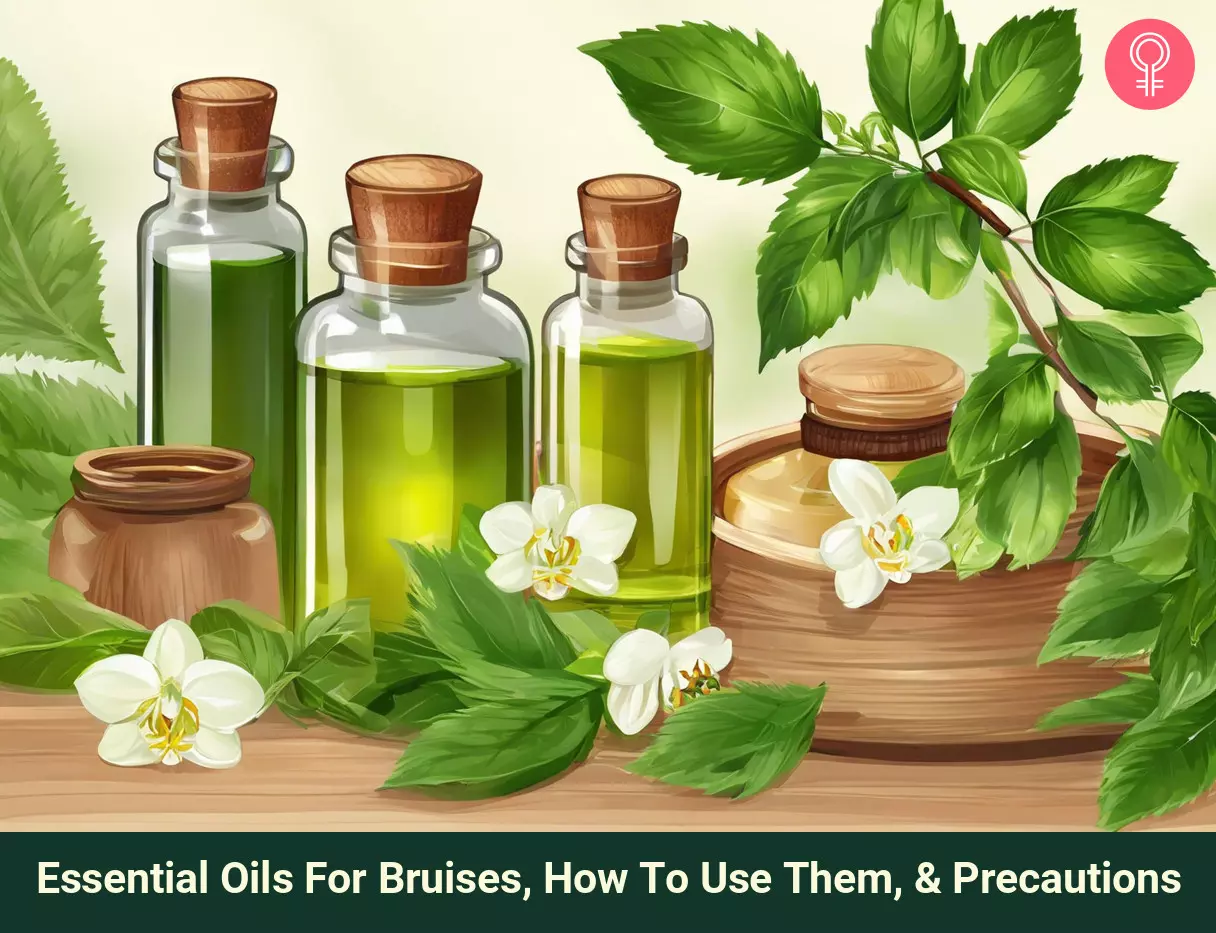
Image: Stable Diffusion/StyleCraze Design Team
Learn how to use essential oils to heal bruising quickly and naturally! Check out this video to discover the best oils to use and how to apply them for maximum benefit.
Personal Experience: Source
StyleCraze's articles are interwoven with authentic personal narratives that provide depth and resonance to our content. Below are the sources of the personal accounts referenced in this article.
i. Essential oils – Bruise be gone (faster)!!https://www.youtube.com/watch?v=2LCeDSIt_PY
References
Articles on StyleCraze are backed by verified information from peer-reviewed and academic research papers, reputed organizations, research institutions, and medical associations to ensure accuracy and relevance. Read our editorial policy to learn more.
- Bruise
https://www.mountsinai.org/health-library/injury/bruise - Commercial Essential Oils as Potential Antimicrobials to Treat Skin Diseases
https://www.ncbi.nlm.nih.gov/pmc/articles/PMC5435909/ - Perioperative Arnica montana for Reduction of Ecchymosis in Rhinoplasty Surgery
https://journals.lww.com/annalsplasticsurgery/Abstract/2016/05000/Perioperative_Arnica_montana_for_Reduction_of.3.aspx - Frankincense and myrrh suppress inflammation via regulation of the metabolic profiling and the MAPK signaling pathway
https://www.ncbi.nlm.nih.gov/pmc/articles/PMC4556964/ - EFFICACY AND TOLERABILITY OF AN ESSENTIAL OIL FORMULATION CONTAINING OIL OF BOSWELLIA SERRATA AND CURCUMA LONGA IN PATIENTS WITH ACUTE SOFT TISSUE INJURIES: A RANDOMIZED, OPEN LABEL, PILOT STUDY
https://innovareacademics.in/journal/ijpps/Vol5Issue1/6272.pdf - Wound healing potential of lavender oil by the acceleration of granulation and wound contraction through induction of TGF-β in a rat model:
https://www.ncbi.nlm.nih.gov/pmc/articles/PMC4880962/ - AN IN-DEPTH REVIEW ON THE MEDICINAL FLORA ROSMARINUS OFFICINALIS (LAMIACEAE)
https://www.food.actapol.net/pub/6_1_2013.pdf - Biological properties and resistance reversal effect of Helichrysum italicum (Roth) G. Don
https://www.researchgate.net/publication/275043439_Biological_properties_and_resistance_reversal_effect_of_Helichrysum_italicum_Roth_G_Don - Kinetic studies of tyrosinase inhibitory activity of 19 essential oils extracted from endemic and exotic medicinal plants
https://www.sciencedirect.com/science/article/pii/S0254629915004068 - The effect of Achillea millefolium and Hypericum perforatum ointments on episiotomy wound healing in primiparous women
https://www.tandfonline.com/doi/abs/10.1080/14767058.2016.1275549
Read full bio of Dr. Henok Malede
Read full bio of Ramona Sinha
Read full bio of Eshna Das
Read full bio of Shiboli Chakraborti






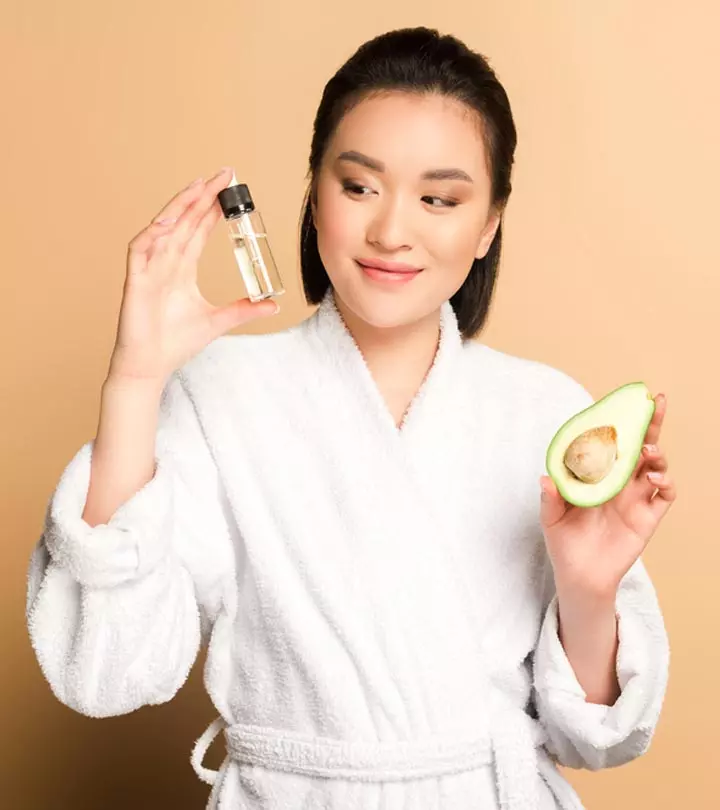
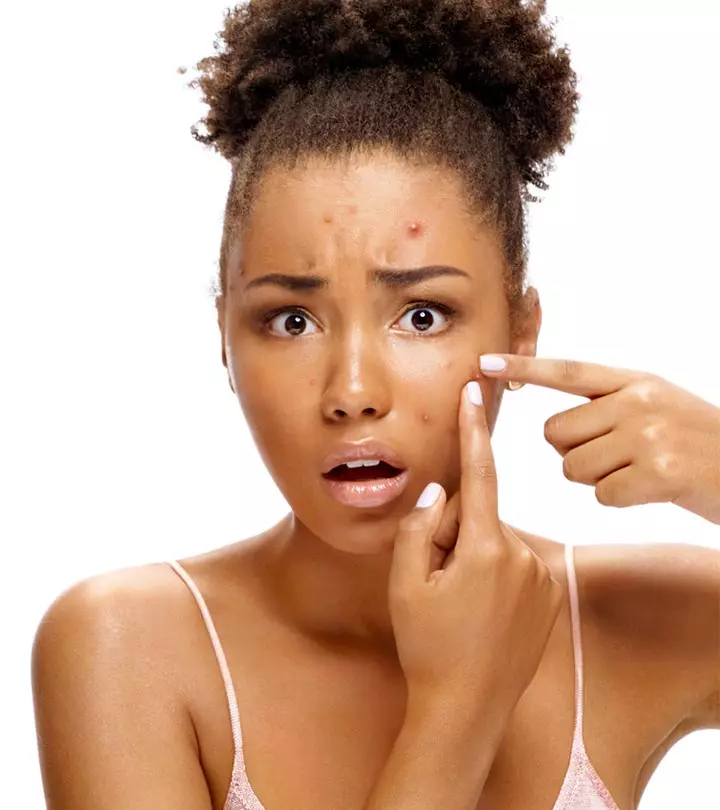
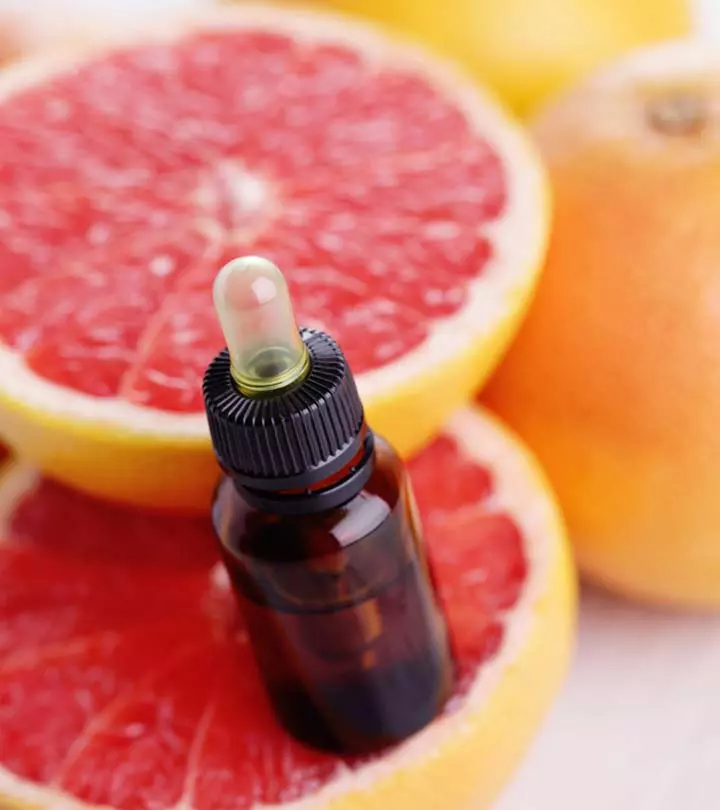
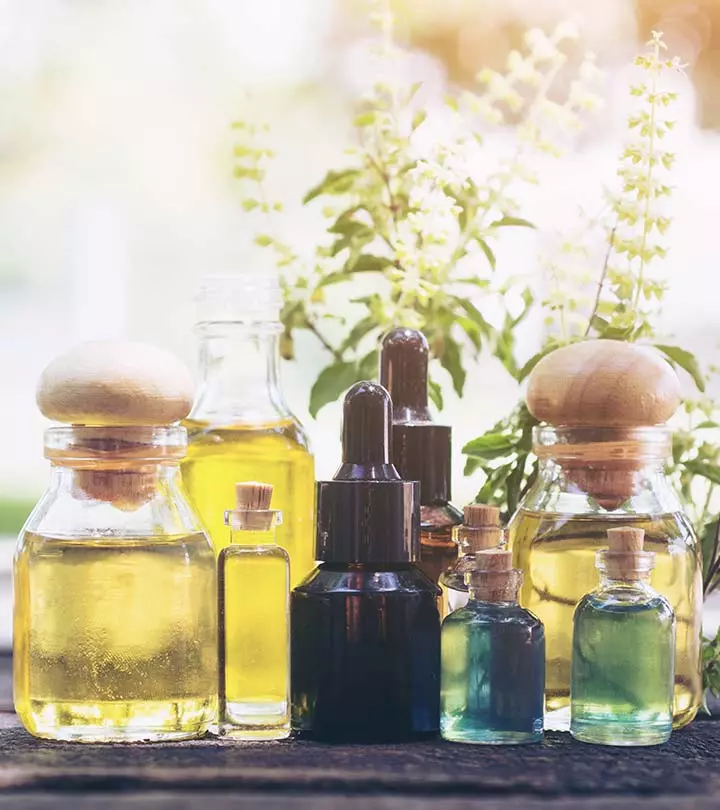
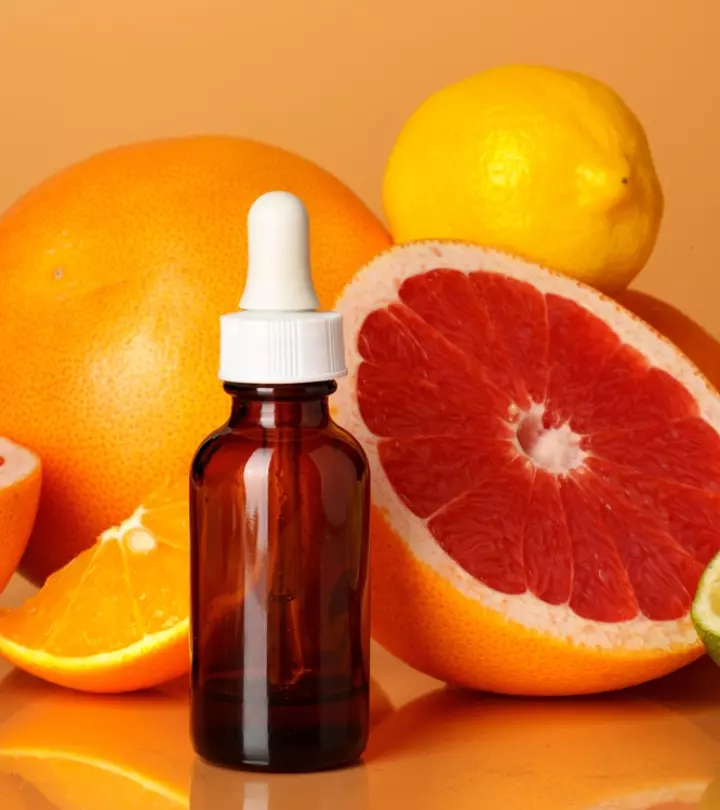
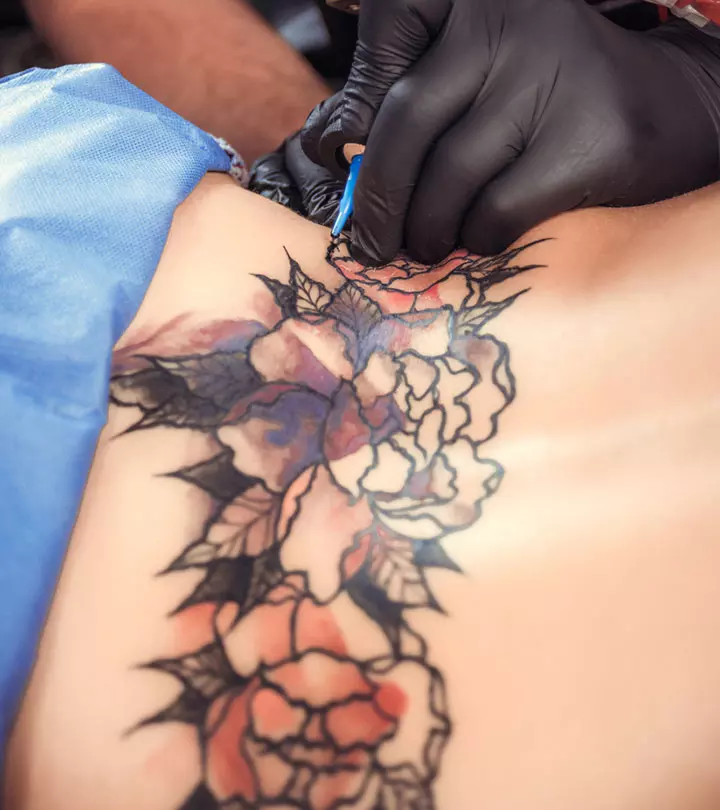
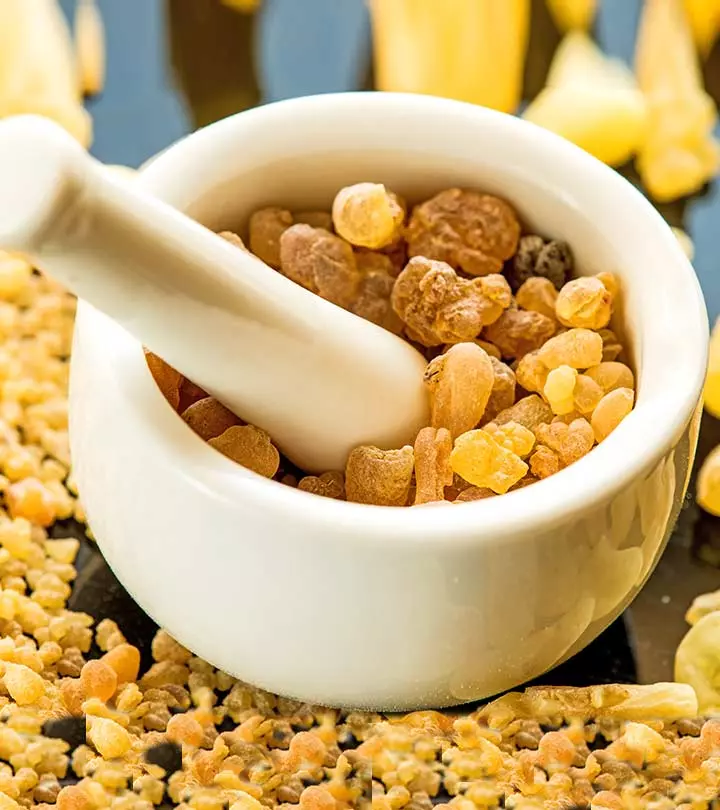
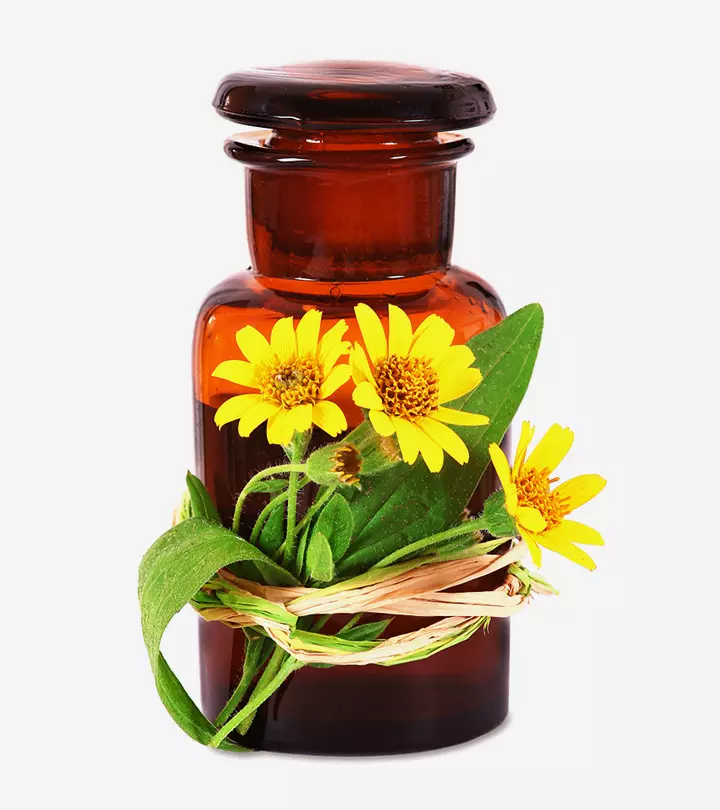
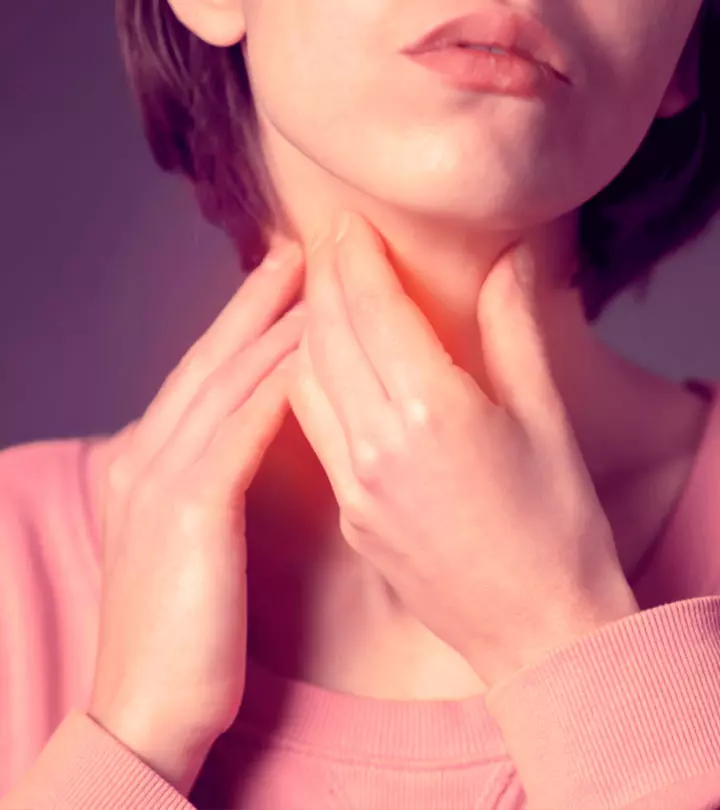
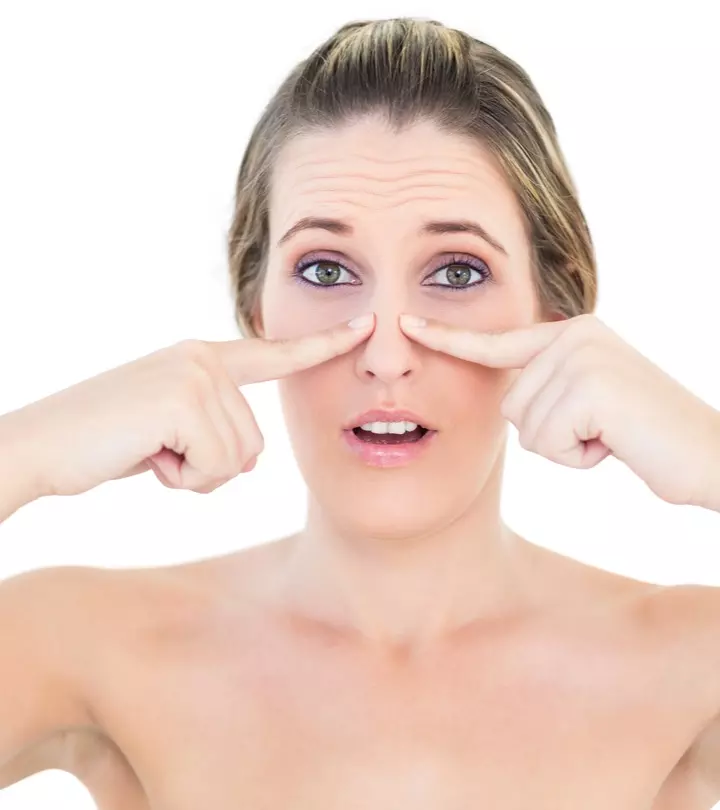
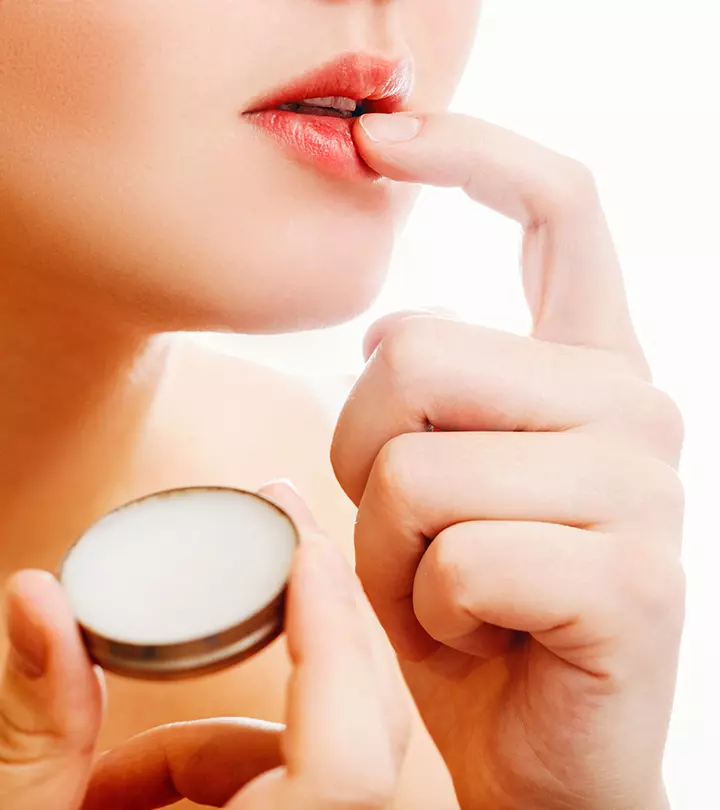
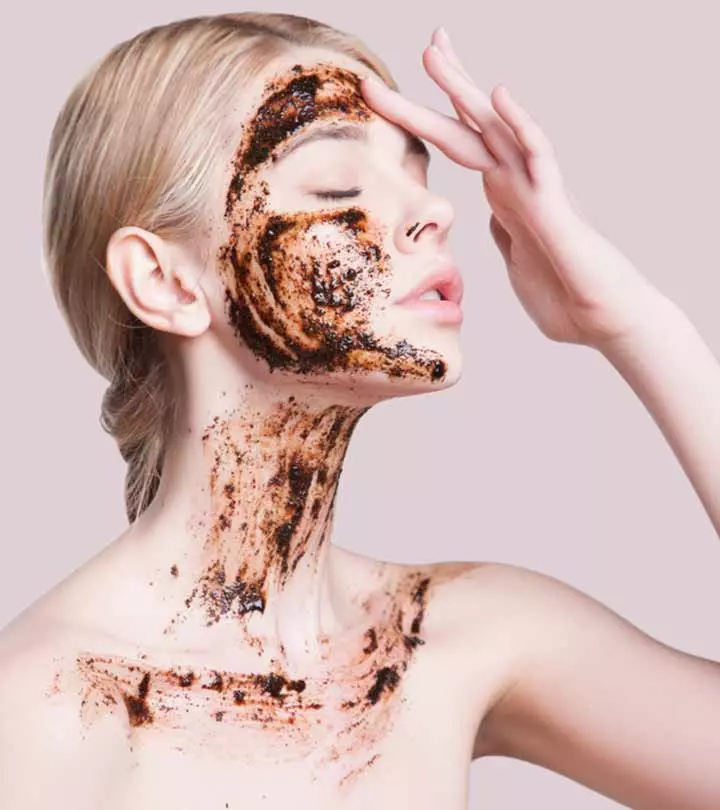
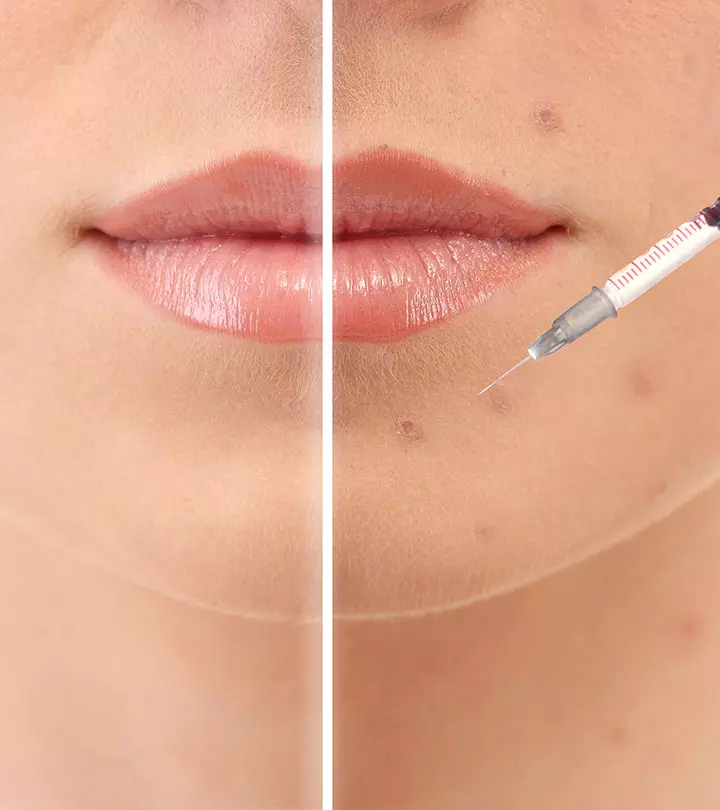
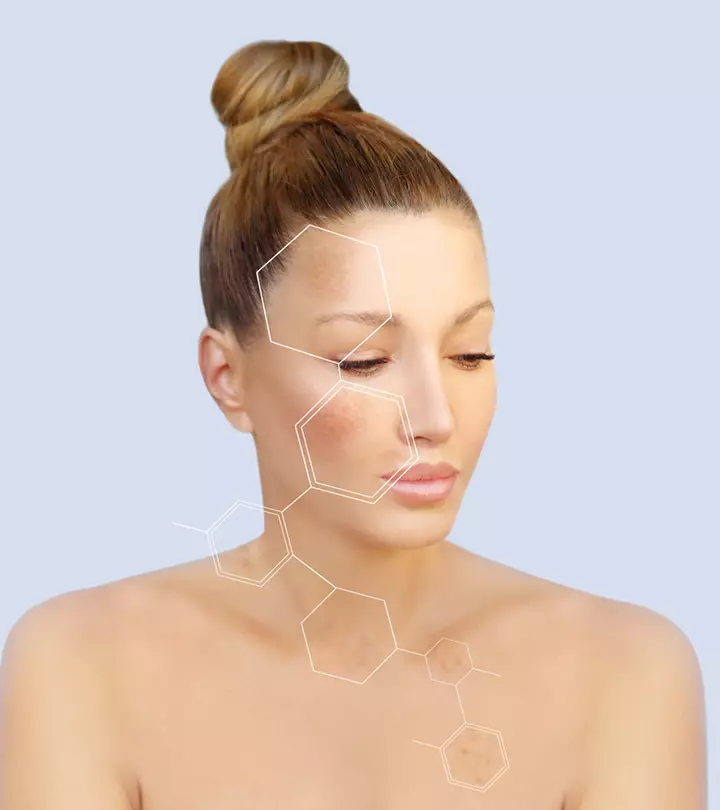

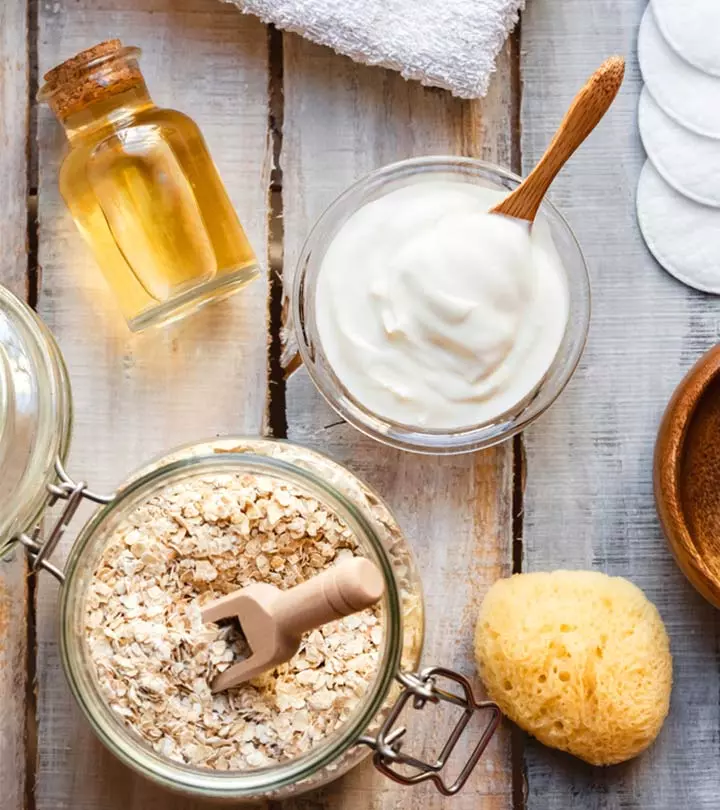
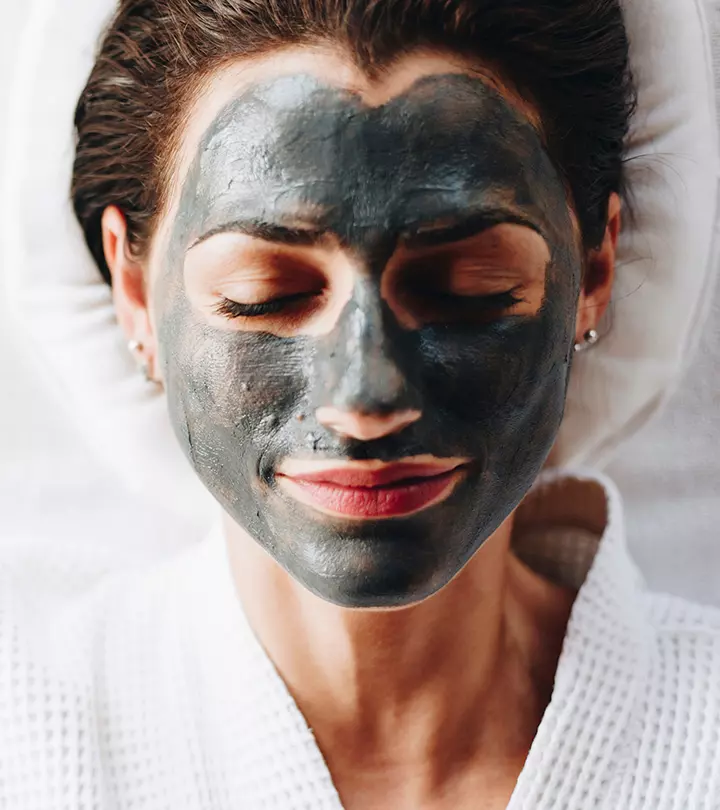
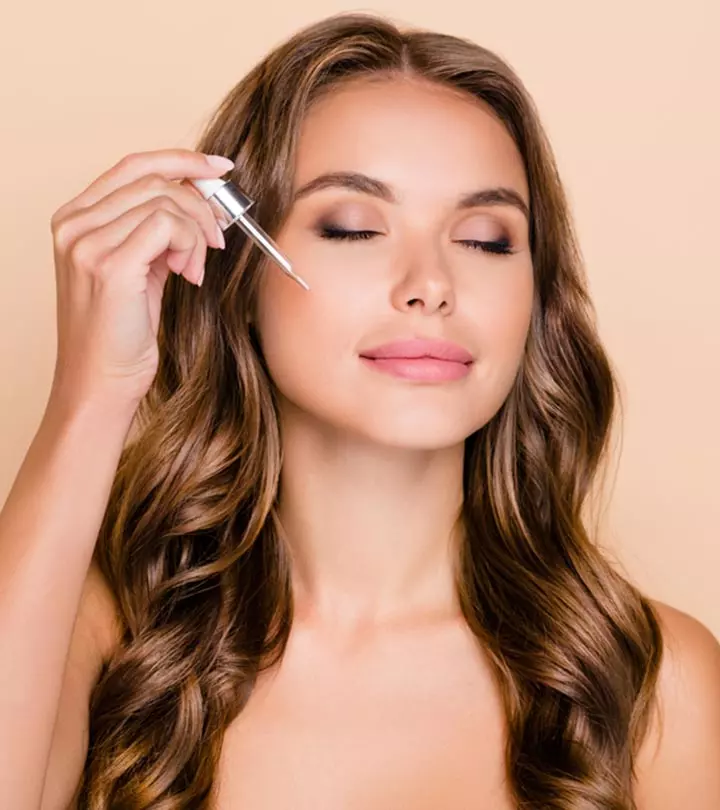
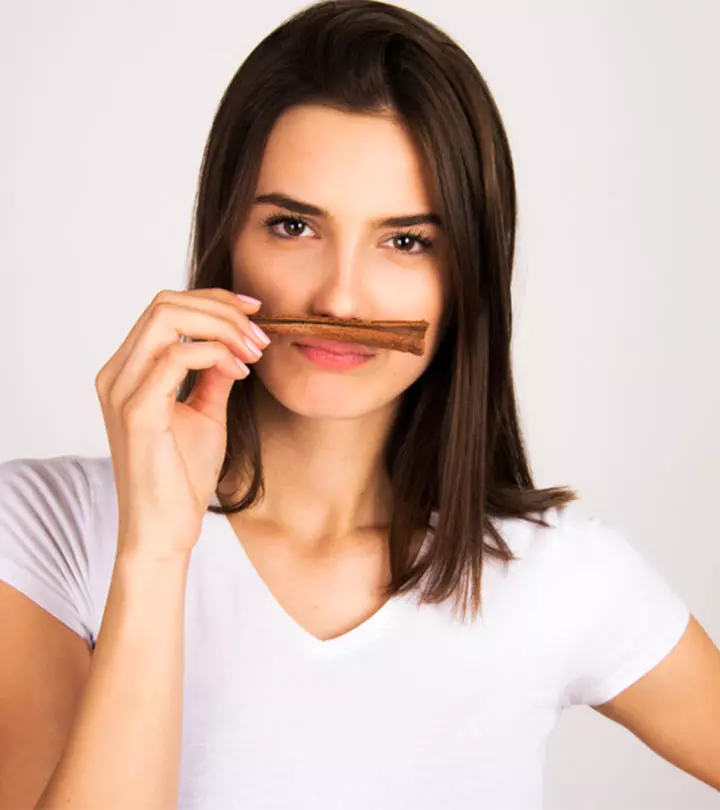
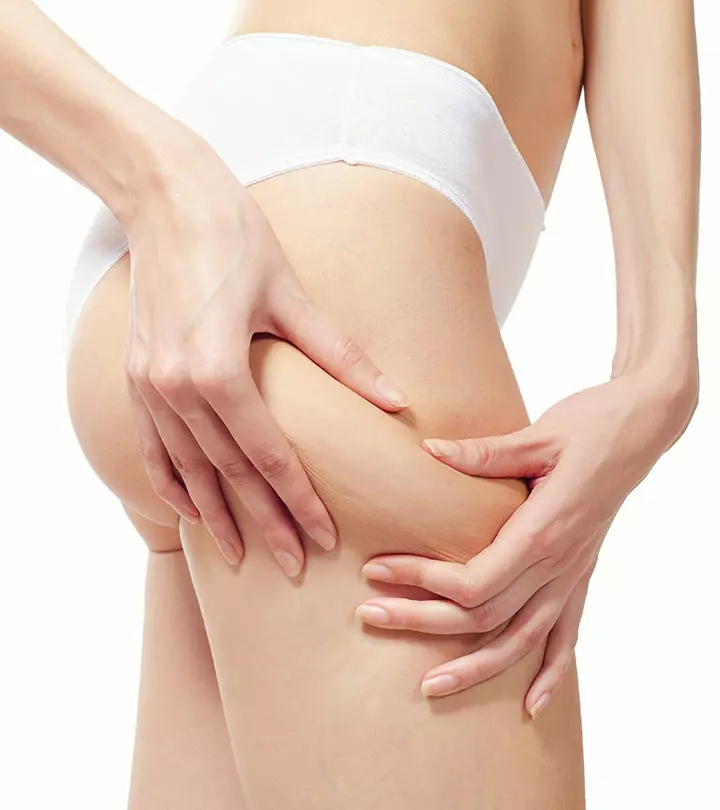

Community Experiences
Join the conversation and become a part of our empowering community! Share your stories, experiences, and insights to connect with other beauty, lifestyle, and health enthusiasts.